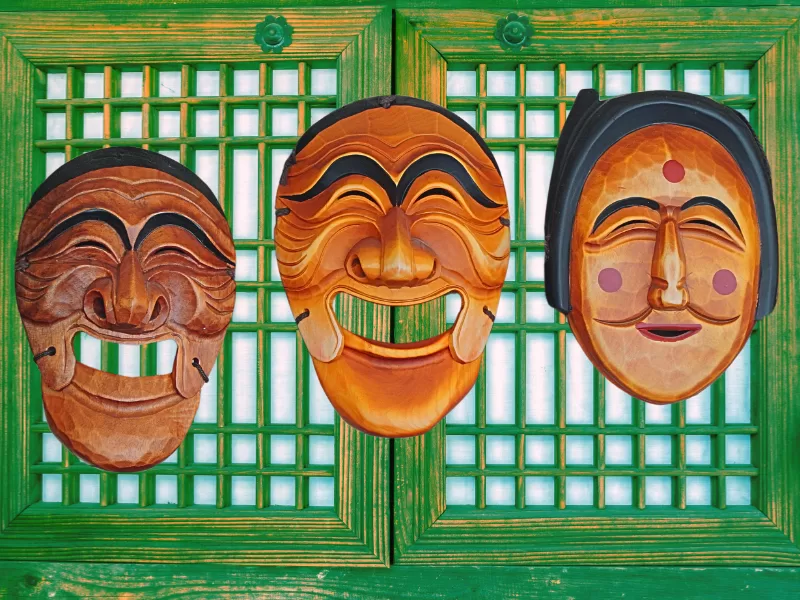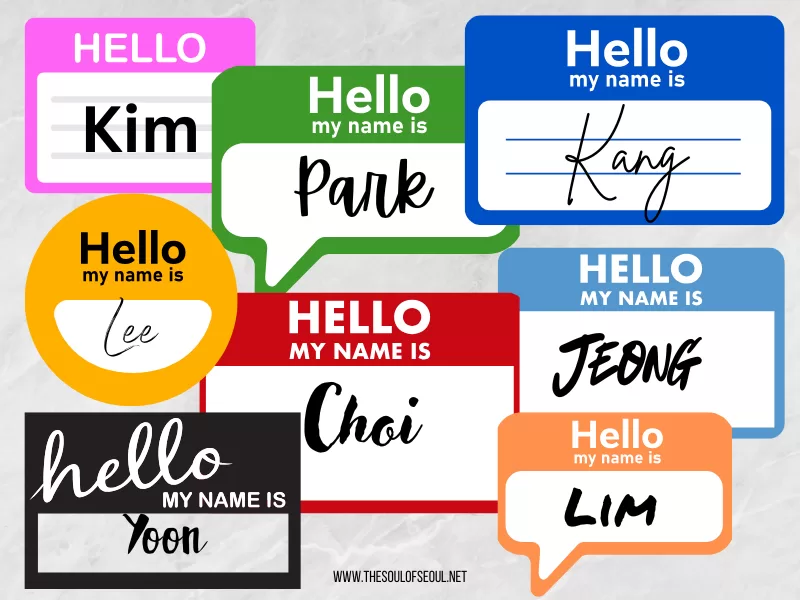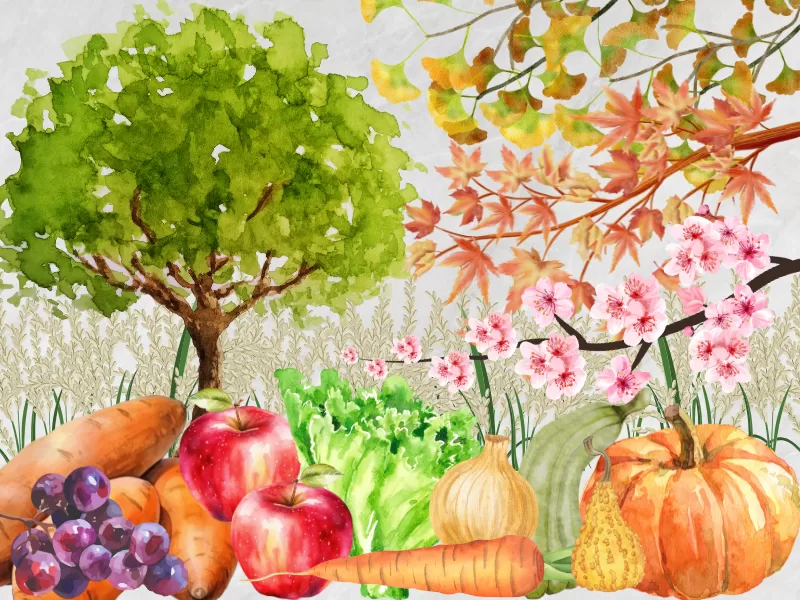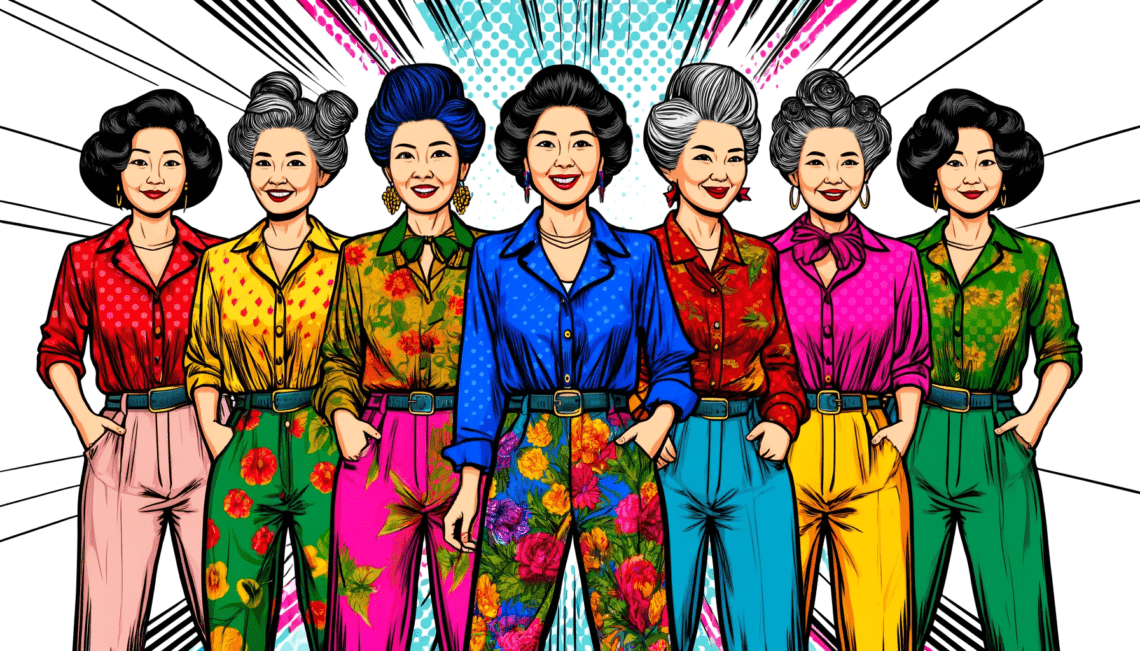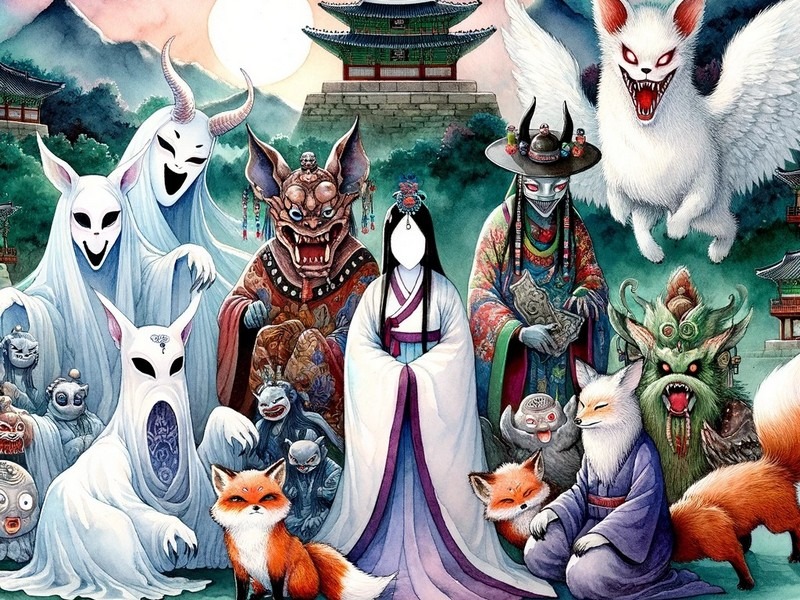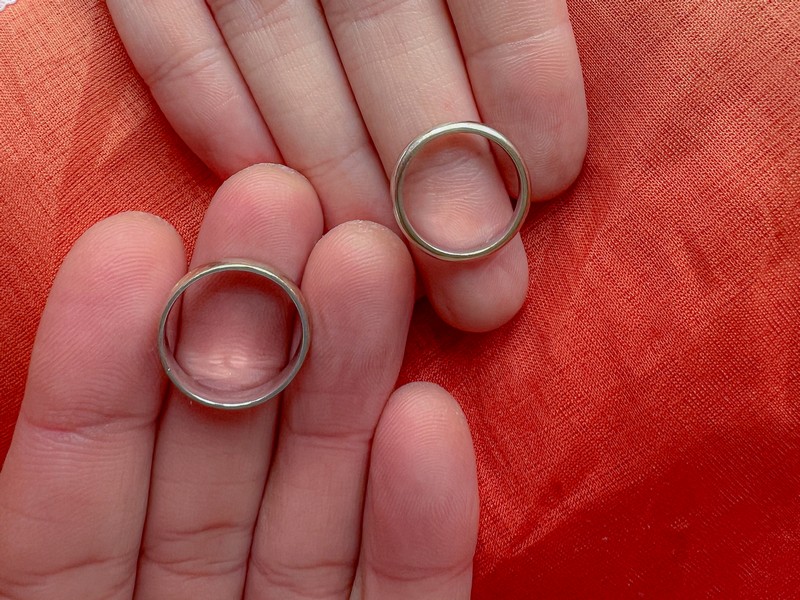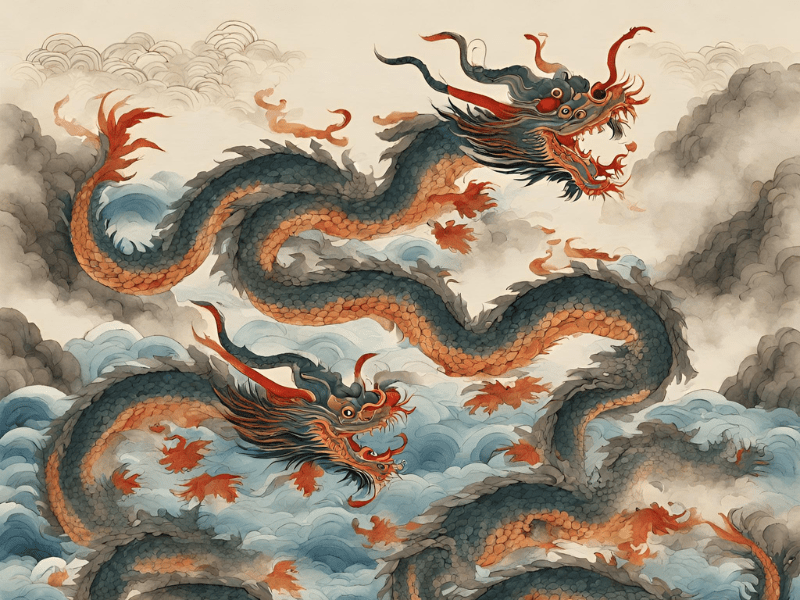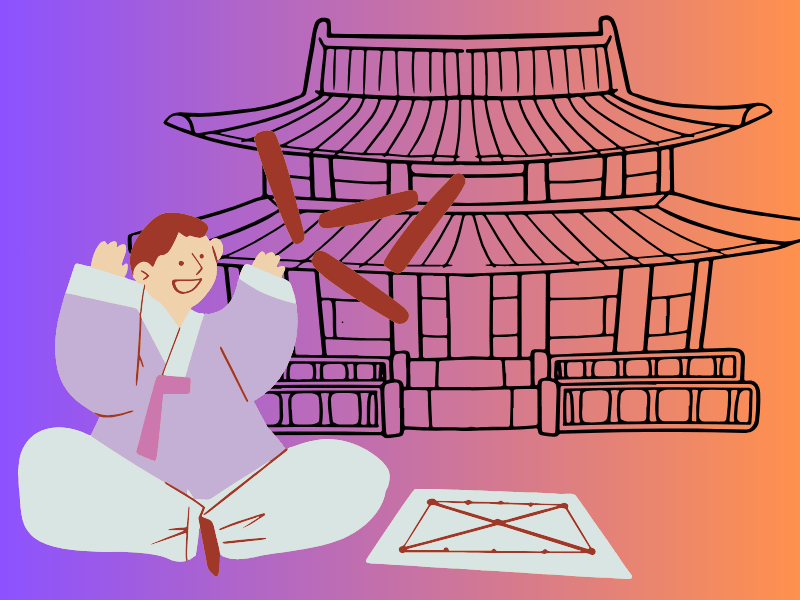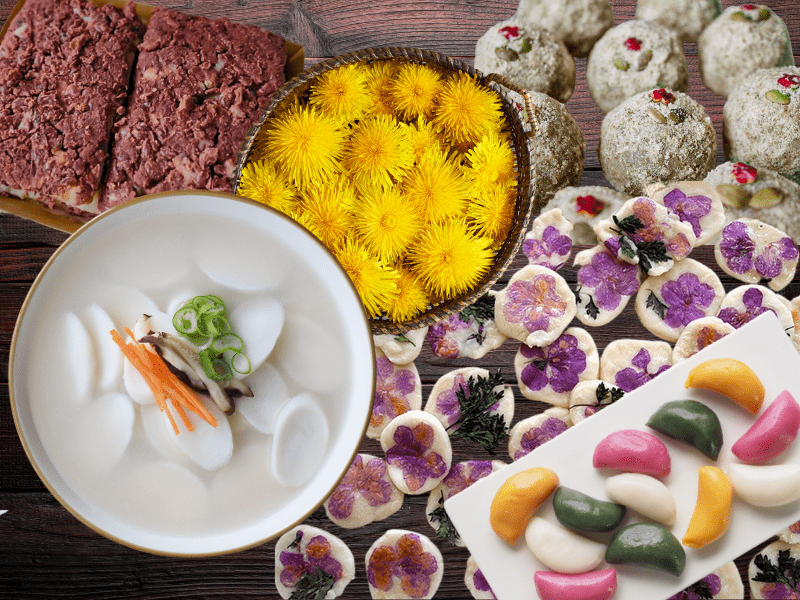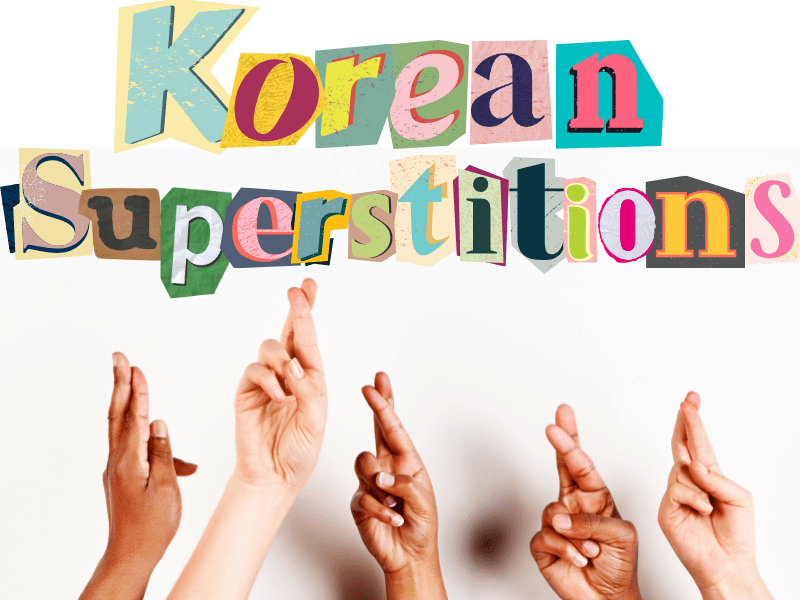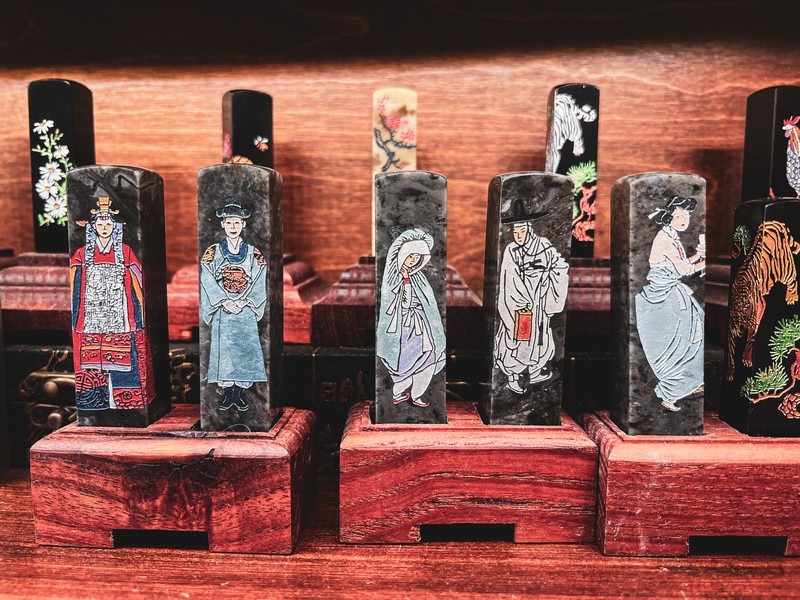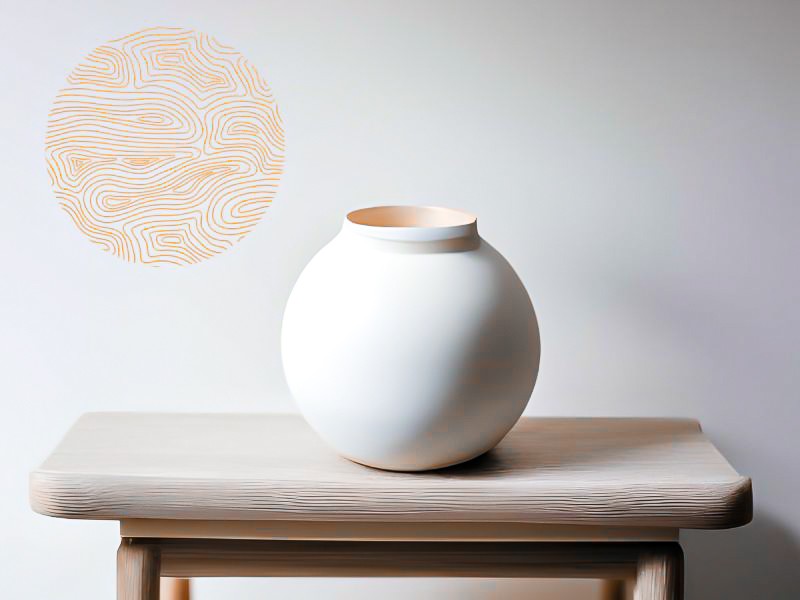Korean Culture (한국 문화)
From Hanboks, to traditional ceremonies in Korea, here are the things to know about Korean culture. (한복에서부터 한국의 전통 의식까지, 여기 한국 문화에 대해 알아야 할 것들이 있다.)
-
Traditional Korean Masks: Ancient Faces with Sacred Stories
You’ve seen Halloween masks and masquerade masks. But in Korea, masks, or tal (탈), are something else entirely. They’re sacred. Part performance, part prayer, and all symbolism, traditional Korean masks are intriguing, unique, and you can spot them more places in Korea than you might realize, from the streets of Insadong to performance venues around the country. They’re still worn, still revered, and still relevant to Korean culture. Want to know what these faces mean and the stories they have to tell? It’s time to learn about the traditional masks in Korea. Get ready to learn about Korean traditional masks from the common sights and the rarest of them all:…
-
Why Are So Many People in Korea Named Kim? What To Know About Korean Last Names & How They Are Changing!
As a foreigner navigating life, love, and family in Korea, I found the history and structure behind Korean names endlessly fascinating. So let me take you on a journey into Korean surnames: why so many people are named Kim, Lee, or Park, what those names really mean, and how even first names have a deep-rooted cultural backstory that connects generations. Trust me, you’ll be fascinated too. Get ready to learn about Korean names, why there are so many Kim’s, and why there are more and more new last names in Korea: (This post contains affiliate links, which means I receive a certain percentage of a sale if you purchase after…
-
Did you know there are 24 Korean seasons?
There’s a longstanding joke among foreigners that live in Korea that pertains to how it is so often promoted that Korea has four distinct seasons. It is as if people, or perhaps the Korean tourism organization, think it is quite unique to have four seasons. As someone who grew up in Ohio in the US, I never really got all the four-season hubbub. I think the joke also plays off of how dreadfully hot, humid, and long summer in Korea can feel and how frigid and cold and long winter in Korea can feel and between them the delightful, but short, cherry blossom-filled spring in Korea, and the brisk pace of…
-
How To Celebrate The Year of The Snake In Korea
Happy New Year! 2025 is the Year of the Snake or the Year of the Serpent, the green snake or wood snake to be precise. The snake is the sixth animal in the zodiac and is a symbol of wisdom and resurrection because it sheds its skin and hibernates to regenerate. In Korean, this year is called “Eulsa” (을) and if you want to celebrate the Year of the Snake in Korea, there are a number of things you can do. So, what does the Year of the Snake mean? And, how can you celebrate the Year of the Snake in Korea? Here’s what you need to know… (This post…
-
That Time I Got Korean Cupping Therapy: What Is It and My Honest Opinion
If you’ve ever wondered about those mysterious red circles you sometimes see on people’s backs at the sauna or pool in Korea, then let me introduce you to cupping therapy, or buhang (부항). It’s an age-old practice in traditional medicine, but, trust me, there’s a lot more to it than just some circular marks. In recent years, it’s become quite a popular treatment — even Hollywood celebs are showing off their cupping marks and you often see it on athletes in major competitions like the Olympics! I’ve personally experienced it on both my back and, most recently, my stomach, and I can tell you, it’s interesting at the very least.…
-
The Korean Ajumma and How I Became One
When I first came to Korea, I had just graduated from university and I was pretty bright eyed and bushy tailed. I had no idea what was what and I was floating through life having fun, attending parties that seemingly never ended, and traveling around South Korea and other nearby countries. Switch to now and I’ve just turned 40 and l’ve learned how to transition into this next stage of my life from the iconic Korean ajummas that I’ve called neighbors for most of my adult life. For some, there’s something scary about them. For others, they seem undaunted by everything and liberated to the point of uncaring about mundane…
-
5 Korean Ghosts and Creatures To Be Scared Of
Whether you’re interested in reading some spooky tales before Halloween this year, or just interested in Korean folklore and mythology, there are some truly creepy and scary creatures you should learn about. From the vengeful spirits of the gwishin, who wander the earth unfulfilled, to the cunning dokkaebi, who navigate the moral compass of right and wrong with mischief, they are just the beginning to the lore you can explore in Korean history and culture. Korean mythology is fascinating… you’ll see. Find out about the creatures that will freak you out in Korea: *Images in this article were generated using AI. (This post contains affiliate links, which means I receive…
-
Couples Rings in Korea: What to Know and How to Make or Buy One
It goes without saying that couple culture in Korea is huge, with loved-up partners finding any opportunity to celebrate their romance together, there is literally a romantic holiday in every month of the year in Korea. From Valentine’s Day to White Day, and from couple’s outfits to couple rings, Koreans go to great lengths to show off their partnerships. So if you’ve got a new partner in Korea, you may want to celebrate your exclusivity with matching couple rings. First, though, you’ll need to know what are Korean couples’ rings, as well as where to buy couples’ rings in Korea, or how to make couples’ rings in Korea. Get ready…
-
How To Celebrate The Year of The Dragon In Korea
Happy New Year! 2024 is the Year of the Dragon, the blue dragon or wood dragon to be precise. The dragon is the only mythical creature among the twelve zodiac signs and is a symbol of strength, prosperity, and success. In Korean, this year is called “Gapjin” (갑진) and if you want to celebrate the Year of the Dragon in Korea, there are a number of things you can do. So, what does the Year of the Dragon mean? And, how can you celebrate the Year of the Dragon in Korea? Here’s what you need to know… (This post contains affiliate links, which means I receive a certain percentage of a…
-
National Foundation Day In Korea and The Myth That Started It All
I have visited a lot of museums and exhibitions in Korea over the years and I’m always drawn into the tales and stories of Korean myths and folklore. If you learned about the Roman gods and Greek mythology in school and loved the tales and lore, you’ll likely be interested in the Korean mythology as well. The origin story of Korea is quite the tale and if you haven’t heard it yet, get ready to discover the beginning of Korean mythology and why today National Foundation Day (개천절) is celebrated. Get ready to dive into Korean folklore, myth, and legend: (This post contains affiliate links, which means I receive a…
-
How To Play Yut Nori: Korea’s Traditional New Year’s Game
If you live in Korea and stay through a traditional Korean holiday, chances are high that you will come across the traditional Korean game known as yut nori (윷노리). Even if you’re not celebrating with a family, you can find the game played at schools, yut nori sets can be found at folk museums, and you can even find sets in local toy stores. Yut nori is a fun Korean game and if you’re looking for something fun to do this Lunar New Year with your kids, this is a great game that you can also prepare yourself at home. Yut nori is a fun traditional Korean game that weaves…
-
The Traditional Korean Food You’re Supposed To Eat Each Month
Did you know there is a holiday on the lunar calendar every month in Korea and there’s a traditional Korean food that is to be eaten on each of these days? While you’ve probably heard of Chuseok and Seollal and maybe even Sambok, there are even more special days on the traditional Korean calendar and food to be eaten on each of these days. Holidays in Korea often involve specific local delicacies, so get ready to learn about what to eat and more importantly when. If you haven’t yet been to the Hansik Space E:eum (한식문화공간) in the Bukchon Hanok Village, make sure to check it out. It has fantastic…
-
30 Korean Superstitions You’ve Probably Never Heard Of
Superstitions exist everywhere and they’re good to know if at the very least to not offend someone or accidentally create some sort of faux pas. If you’ll be traveling to Korea or living in Korea and wonder if there are Korean superstitions (미신), well there are! From accidental death by fan to red ink causing a stir, there are plenty of superstitions in Korea you should be aware of… or beware of. Superstitions may just be quirky beliefs to some, but they can bring on ritualistic behavior by others. Korea has a history steeped in folklore and mythology and brings together beliefs in Confucianism, Buddhism, and Shamanism which means there…
-
The Korean Dojang: How To Get A Korean Name Stamp
If you’re living in Korea and you’ve ever wondered why the area to put your signatures on forms is so small, the answer is the dojang. I’m sure I’m not the only one that went from a full name signature to just using my initials when signing everything from bank books to contracts after moving to Korea. Wondering what that name stamp is every Korean person seems to have when they go to sign a contract? Let me fill you in. In Korea, a dojang (도장) is a seal or stamp with one’s name or signature. Whether you want one for legal purposes in Korea or if you are just…
-
The Korean Moon Jar: What It Is and Why It’s Iconic
The world of ceramics is filled with treasures that span centuries and cultures and Korea is a country that has an immense history with ceramics in a variety of forms. The Korean moon jar is a uniquely beautiful piece of Korea’s ceramic culture and stands as an iconic symbol of simplicity, elegance, and cultural significance. These unique porcelain vessels, with their milky white glaze and distinctive shape, have captured the hearts of artists, collectors, and connoisseurs for generations and more recently, thanks to RM of BTS, a new and younger generation of people around the world have learned about the iconic moon jars. Get ready to learn about the iconic…
-
Crows, Shamanism, and Jeju Island with Joey Rositano
While thousands of people visit Jeju Island in South Korea each month and visit the hot spots and beautiful beaches, there are few that have become as intrigued with the Shamanic practices and rites unique to the Korean island as Joey Rositano. There is more to the island famous for idyllic views and Korean honeymooners than many tourists ever realize. Learn more about Rositano’s latest project called ‘Scattering’ which explores the fascinating and puzzling connection between crows and humans in the Shamanic ceremonies in the Darakut village of Jeju Island. Learn more about the fascinating book called ‘Scattering’ and the writer, researcher, and photographer, Joey Rositano: *All photos in this…
